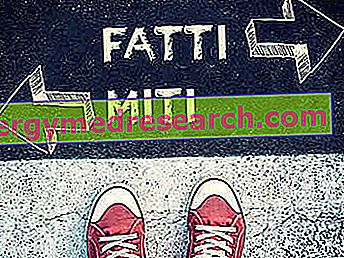By Dr. Stefano Casali Here are some definitions of Sport Psychology and the figure of the Sport Psychologist: Sports Psychology covers those academic, research and professional activities that provide the basis for understanding and stimulating the behavior of people practicing sport or physical activity
Category psychology
By Dr. Stefano Casali The term insomnia derives from the Latin insomnia and literally means lack of dreams. In common language it indicates an insufficient continuity of Sleep. In the definition of insomnia, therefore, the aspect of insufficient duration and continuity of Sleep, objectively controllable in the laboratory, must be associated with that of unsatisfactory quality of Sleep, linked to the subjective evaluation of each on the restful properties of one's Sleep
By Dr. Stefano Casali Hypersomnias include several functional and organic diseases, the common denominator of which is excessive daytime sleepiness, which is severely disturbing and sometimes so severe as to be uncontrollable. Depending on the hypersomnia considered, the main symptoms are from time to time represented by sleepiness during daylight hours, reduced cognitive and motor performance, excessive tendency to sleep, uncontrollable sleep attacks, increased sleep time in 24 hours and difficulty in reaching a complete awakening
Edited by Eugenio Ciuccetti, Obstetrician We met Dr. Sla Carla Bosisio, a psychologist from Milan, specialized in Clinical Psychology and an expert in hypnosis. In the past she has collaborated with the Faculty of Psychology and Educational Sciences of the Catholic University and was assistant professor of Social Psychology at IULM
Generality Hysteria is a complex mental disorder characterized by the presence of one or more sensory-motor symptoms (such as, for example, paralysis, blindness and paresthesia), which cannot be justified by a known neurological or internalistic disease. Currently defined as "conversion disorder" , hysteria is considered the expression - through somatic disorders - of inner conflicts that are not reflected on physiological grounds
Generality Megalomania is a psychopathological manifestation characterized by an exaggerated appreciation of oneself and one's abilities. The megalomaniac subject typically assumes attitudes of superiority , tends to lead the way and undertakes to carry out disproportionate tasks with respect to his own strength
Generality Masochism is a mental disorder characterized by an attitude of passivity to mistreatment and suffering, which springs from a sort of desire for self-punishment and penance . This anomaly concerns both sexuality (erogenous or sexual masochism), and a trait of the subject's own character (moral masochism), which is expressed in the pursuit of pleasure through psychological pain (humiliation) or physical pain
Generality The mythomania is a psychopathological manifestation characterized by the recurring need to distort reality , intentionally elaborating fictitious scenarios that are not likely. From this follows the predisposition to tell lies , often of a complex and fanciful nature, in order to: Hide their weaknesses from others; Protect yourself from the judgment of others; Increase one's self-esteem; Arousing admiration, esteem or compassion in other people
Generality Misophobia is the pathological fear of coming into contact with dirt and germs, to avoid any kind of contamination or infection . This psychological disorder leads those suffering from it to increase hygienic precautions beyond belief. Misophobia leads, therefore, to resort to measures to avoid situations, people or objects that can increase the risk of contracting diseases
By Dr. Gianpiero Greco Music is applied to all ages and affects the heart rate, blood pressure, breathing (greater amount of O2 available for the various areas of the body), the level of certain hormones, in particular that of stress, and endorphins. Listening to Mozart's music you have benefits on memory and learning, as it promotes concentration and improves productivity (Jausovec et al
Generality Music therapy is a discipline based on the use of music as an educational, rehabilitative or therapeutic tool. It has long been known that listening and playing sounds and melodies can act on moods and emotions , by virtue of their relaxing or stimulating properties. However, more recently, scientific interest has focused on the possibility of exploiting this practice as a complementary therapy , in various pathological and paraphysiological conditions










